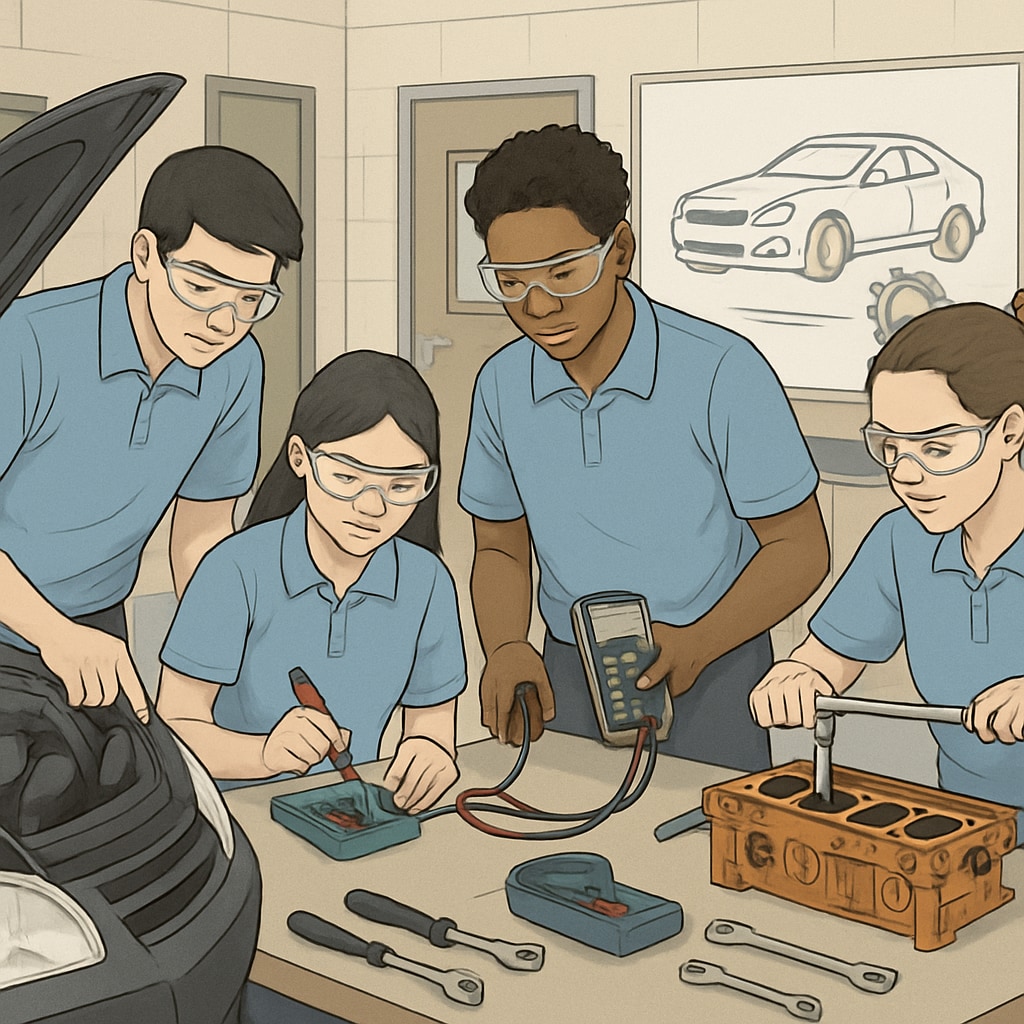For students aiming to transition from an associate degree in automotive technology to a bachelor’s degree, understanding the pathway and utilizing strategic academic planning is essential. This process can be especially relevant for individuals with military backgrounds, who often possess unique technical skills and disciplined work ethics. In this article, we’ll explore how leveraging K12 education to develop technical proficiencies can lay the groundwork for academic progression, and how students can make the leap from associate to bachelor’s degree effectively.
The Importance of K12 Education in Developing Technical Skills
K12 education plays a foundational role in preparing students for higher education and the workforce. By fostering technical skills early, students can gain confidence in their abilities and identify potential career paths. For example, STEM (Science, Technology, Engineering, and Mathematics) programs, vocational training, and hands-on workshops in high schools allow students to explore fields like automotive technology. These programs not only teach practical skills but also instill problem-solving and analytical thinking, which are critical for success in higher education.
Additionally, K12 educators can help students understand the value of certifications and degrees in technical fields. By introducing concepts like credit articulation and degree pathways early, students develop a clearer vision of how their education can progress from high school to college and beyond.

Military Background as an Advantage in Automotive Technology
For military personnel or veterans looking to earn a bachelor’s degree, their background can be a significant advantage. Many military roles involve technical training, discipline, and leadership skills that align well with the automotive technology field. These individuals often possess hands-on experience with machinery, systems, and troubleshooting, making them ideal candidates for advanced learning in automotive technology.
In addition, military benefits such as the GI Bill can help cover tuition costs, making higher education more accessible. Furthermore, many colleges offer credit for military training, which can reduce the time and cost required to earn a degree. This credit transfer process is critical for turning an associate degree into a bachelor’s degree efficiently.
How to Transition from an Associate Degree to a Bachelor’s Degree
Transitioning from an associate degree to a bachelor’s degree in automotive technology requires careful planning. Here are the key steps:
- Research Bachelor’s Programs: Look for universities that offer automotive technology or related programs. Check if they accept credits from your associate degree.
- Understand Credit Transfer Policies: Many colleges have articulation agreements (contracts that allow credits to transfer easily) with community colleges. Ensure your associate degree aligns with these agreements.
- Leverage Prior Experience: If you have military or professional experience, inquire about credit recognition for practical skills or prior learning.
- Seek Academic Advising: Academic advisors can help map out a plan to complete your bachelor’s degree while maximizing credit transfer.
- Explore Online Options: For flexibility, consider online programs that allow you to balance education with work or other responsibilities.

Benefits of Achieving a Bachelor’s Degree in Automotive Technology
Earning a bachelor’s degree in automotive technology opens doors to advanced career opportunities. While an associate degree may qualify individuals for entry-level technician roles, a bachelor’s degree can lead to positions in management, engineering, or specialized areas like automotive design and manufacturing. It also provides a broader understanding of business operations, leadership, and technology integration.
For military personnel transitioning to civilian careers, a bachelor’s degree can enhance employability and salary potential. According to the U.S. Bureau of Labor Statistics, individuals with bachelor’s degrees earn significantly more on average compared to those with associate degrees. This makes the investment in education worthwhile for long-term career growth.
Conclusion: Preparing for Academic and Career Success
Transitioning from an associate degree in automotive technology to a bachelor’s degree is a rewarding process that requires preparation and strategy. By leveraging K12 education to build technical expertise, utilizing military experience for credit recognition, and carefully navigating degree pathways, students can achieve academic progression and career success. Whether through traditional on-campus programs or flexible online options, the journey to a bachelor’s degree is a worthwhile investment in the future.
For those considering this path, start by exploring universities that align with your goals and take advantage of resources such as academic advisors and military education benefits. The foundation you build today will pave the way for a fulfilling and prosperous career tomorrow.


